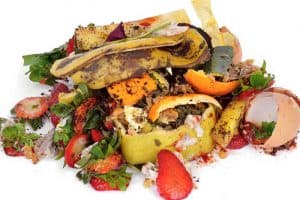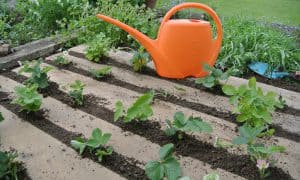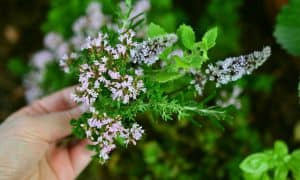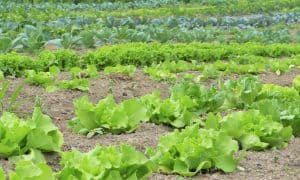
One of the important aspects of composting at home is the use of food scraps. This is because right scraps can be decomposed into rich soil loaded with nutrients and can serve as soil fertilizer and pest repellent to your plants.
Understanding the Process
Composting is the method of decomposing organic matter (such as yard wastes and food scraps) for the purpose of recycling it into gardening fertilizer. When broken down, these decayed scraps become rich, black soil loaded with nutrients. While composting is a natural occurrence which takes place whenever a plant dies, the process, however, can take a long time (sometimes months or even years) if the conditions aren’t most favorable. These conditions include good airflow to allow oxygen compost the materials as well as adequate moisture to let microorganisms break down the organic matter. Other factors to consider are heat which happens naturally when the first two (air and moisture) contents are ideal, and food which refers to the proper amounts of carbon and nitrogen needed for composting.
Building Your Own Compost Pile
- What to Compost. Aside from the usual yard waste like leaves and grass clippings, you can also make use of your food scraps at home in creating your compost pile. These include ordinary items like egg shells, coffee grounds, tea bags, fruit and veggie peelings, stale bread or leftover cereals, expired spices, and many more. Do compost the following:
- all of your fruit and veggie wastes including rinds and cores even if they already turned ugly and moldy
- all fruit and veggie pulps from juicing
- anything made out of flour like old bread, pizza crusts, donuts, crackers, cookies, and noodles
- tea bags, coffee grounds, and filters
- old spices, and expired boxed foods from your pantry
- egg shells, and corn cobs and husks
- What Not to Compost. Never, ever put the items below into your compost as they breakdown slowly and only cause imbalance to the otherwise nutrient-rich structure of other food scraps. Besides, these items also attract scavenging animals like rodents which you would never want to be hanging around your garden. Lastly, meat appeals to maggots, and your compost bin will just end up reeking with terrible smell.
- meat and meat wastes like fat, bones, skin, gristle, etc
- fish or fish waste
- dairy products like cheese, yogurt, butter, sour cream, etc.
- oil and grease
Using food scraps to grow and maintain your garden is definitely win-win situation for most of us. It does not only help enrich the soil, but it also grows much healthier and hardier plants, and even aid in the disposal of our garbage.







Pingback: Preparing the Soil for Organic Gardening – Organic Gardening Secrets